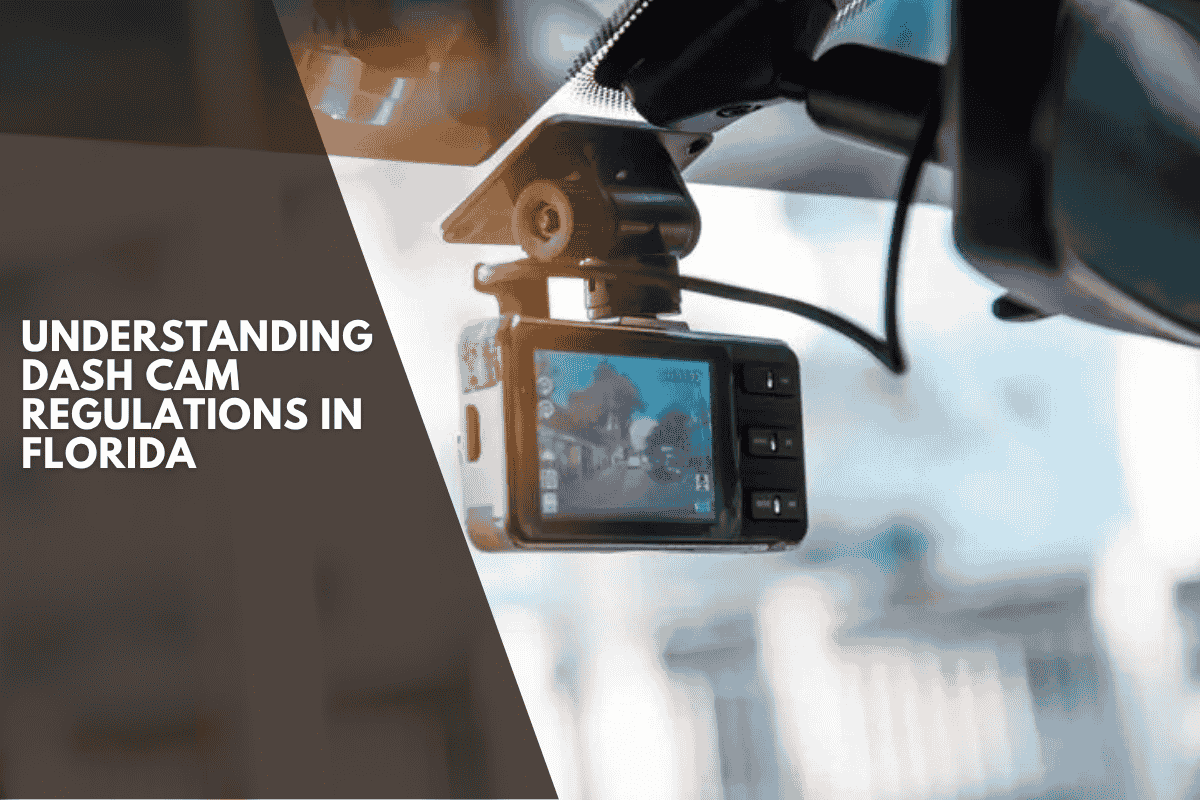Dash cams are legal for use in private vehicles throughout Florida. Drivers can use them to record accidents, monitor driving habits, and provide evidence in case of disputes or insurance claims. However, their legality comes with specific conditions regarding placement and privacy that all users must follow to avoid legal issues.
Placement and Windshield Obstruction Laws
Florida law prohibits any object from being placed on the windshield, side, or rear windows if it obstructs the driver’s clear view of the road. According to Florida Statute 316.2004, dash cams must be installed in a way that does not block or impair the driver’s vision.
The best practice is to mount the dash cam behind the rearview mirror or in the lower passenger-side corner of the windshield, where it won’t interfere with your line of sight. Improper placement can result in a citation for violating the state’s windshield obstruction law.
Audio Recording and Consent
Florida is a two-party consent state under Florida Statute 934.03, meaning all parties involved in a private conversation must give consent to be recorded. This law applies to dash cams that record audio inside the vehicle.
If your dash cam captures audio of passengers or others without their knowledge and consent, you could be violating state wiretapping laws, which carry serious penalties. To comply, always inform passengers that audio recording is taking place, or disable the audio feature unless everyone consents.
Privacy Considerations
While video recording in public spaces, such as roads and highways, is generally not restricted, Florida law protects individuals’ reasonable expectations of privacy.
Avoid intentionally recording private property or areas where people expect privacy, and always notify passengers if audio is being recorded. Recording in a manner that violates privacy expectations can render footage inadmissible in court and expose you to legal risk.
Admissibility of Dash Cam Footage in Court
Dash cam footage is generally admissible as evidence in Florida courts, provided it meets certain conditions. The footage must be relevant to the incident, authentic (unaltered and timestamped), and obtained legally in compliance with placement and consent laws.
Any attempt to alter or selectively edit the footage can make it inadmissible. Maintaining a proper chain of custody—transferring the footage directly from the device and preserving its integrity—is crucial for its acceptance in legal proceedings.
Practical Benefits and Cautions
Dash cams offer substantial benefits for Florida drivers, including clear evidence in accident disputes, support for insurance claims, and protection against false allegations. However, drivers must ensure their dash cam setup complies with all state laws to avoid fines or legal complications. Audio recording without consent and improper placement are the most common pitfalls.
Dash cams are legal in Florida if installed without obstructing the driver’s view and used in compliance with strict audio recording consent laws. Video footage is generally allowed, but audio recording requires the consent of all parties inside the vehicle. Always check your dash cam’s placement and inform passengers about recording to stay within the law and ensure any footage you capture is admissible in court.
Sources
[1] https://brookslawgroup.com/legal-blog/are-dashboard-cameras-legal-in-florida-tampa-accident-attorneys-have-the-answer/
[2] https://www.lwmpersonalinjurylawyers.com/blog/the-role-of-dashcam-footage-in-florida-car-accident-cases/
[3] https://www.wpricepa.com/blog/are-dash-cams-legal/
[4] https://www.ftlinjurylaw.com/blog/florida-dash-cam-laws/
[5] https://pl-law.com/florida-dash-cam-laws-how-dash-cam-footage-can-help-your-case/











